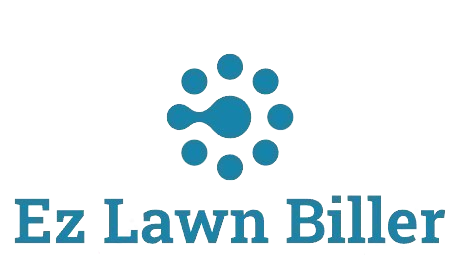Manage Schedules Best Practices for Lawn Care Pros
Managing schedules effectively is crucial for lawn care professionals aiming to enhance their service delivery and customer satisfaction. In a business where timely service is often linked to customer loyalty, ensuring that your schedules are efficiently managed can significantly impact your bottom line. This blog post will delve into best practices for scheduling, tools that can aid in this process, and strategies to improve overall efficiency in lawn care operations.
As lawn care professionals, managing client expectations and service timelines can be daunting, especially during peak seasons. Having a robust scheduling system not only ensures that you meet client needs but also maximizes the productivity of your team. This article will explore practical strategies and modern tools, including the use of lawn billing software, that can streamline your scheduling process and bolster your business efficiency.
Understanding the Importance of Effective Scheduling
Effective scheduling is the backbone of any successful lawn care business. It not only helps in managing time efficiently but also minimizes downtime and enhances service delivery. According to recent studies, businesses that utilize automated scheduling tools can increase productivity by up to 30%.
Moreover, accurate scheduling helps in building trust with your customers by ensuring that services are rendered as promised. An anecdote that illustrates this is a lawn care company in Austin, Texas, which saw a 25% increase in customer retention rates after adopting a digital scheduling tool. This tool allowed them to not only manage appointments but also send reminders to clients, fostering better communication.
Utilizing Technology for Scheduling
One of the most significant advancements in the lawn care industry is the advent of scheduling software. Utilizing a dedicated lawn service software can transform how you manage your appointments. These platforms often come with features like automated reminders, client management systems, and route optimization.
For instance, software like EZ Lawn Biller automates the billing process while integrating scheduling functionalities. This means that not only do you keep track of when services are due, but you can also streamline invoicing processes simultaneously. Such integrated solutions help reduce administrative overhead and human errors, allowing lawn care professionals to focus more on the field than on the paperwork.
Best Practices for Scheduling
To ensure your scheduling process runs smoothly, adopting best practices is essential. Here are several key strategies:
- Plan Ahead: Always schedule services in advance. Use a monthly or weekly planner to visualize your workload and allocate resources accordingly.
- Use Color-Coding: Implement a color-coded system to distinguish between different types of services or client priorities. This visual cue can help you quickly assess your schedule and make necessary adjustments.
- Set Realistic Time Estimates: Be honest about how long tasks will take. Underestimating time can lead to overbooking and disappointed clients.
These practices not only enhance your operational efficiency but also improve client satisfaction. For example, a lawn care business in Orlando improved their punctuality rates by 40% simply by implementing these scheduling techniques.
Maximizing Workforce Efficiency
Another critical aspect of effective scheduling is optimizing the workforce. Understanding your team’s strengths and weaknesses can help you assign tasks more strategically. Consider these approaches:
- Assess Skill Levels: This allows you to allocate jobs based on expertise. For instance, complex landscaping may be better suited for your most skilled employees.
- Incorporate Regular Feedback: Communicate with your team to understand any scheduling conflicts or challenges they face. This dialogue can lead to a more harmonious work environment.
- Utilize GPS Tracking: For mobile teams, using GPS can aid in optimizing routes, reducing travel time, and ensuring timely arrivals.
Moreover, integrating tools like a lawn service app can provide real-time updates on schedules and client information, keeping your team connected and informed throughout the day.
Creating a Client-Centric Scheduling System
In lawn care, client preferences play a crucial role in scheduling. Tailoring your schedule to match clients’ needs can significantly enhance customer satisfaction. Some strategies include:
- Flexible Scheduling: Offer clients options for different time slots or days. This flexibility can make a significant difference in their perception of your business.
- Send Reminders: Automated reminders via email or SMS can help reduce missed appointments and keep your clients informed.
- Collect Feedback: Regularly ask for client feedback on your scheduling. Understanding their preferences can help you improve and adapt your services.
For instance, a lawn service company in Denver implemented a client feedback loop and saw a marked improvement in customer retention rates. Clients appreciated the tailored service, leading to increased referrals and business growth.
Embracing Recurring Billing for Consistent Revenue
Incorporating a recurring billing system can help stabilize cash flow for your lawn care business. With clients needing regular services—like mowing or fertilization—setting up automated billing through a platform such as [Lawn Biller Software](https://ezlawnbiller.com/) ensures you are paid consistently without having to chase invoices.
Not only does this improve your financial management, but it also enhances client satisfaction. Clients appreciate the convenience of not having to remember to pay each month, leading to a smoother service experience. Furthermore, automated billing minimizes the risk of late payments, ensuring you have the cash flow necessary to manage your operations effectively.
Case Study: Real-World Application of Scheduling Best Practices
Let’s look at a case study of a lawn care business in Seattle that faced challenges in managing its scheduling effectively. Prior to adopting a professional lawn service computer program, the company struggled with overbooked schedules and miscommunication with clients.
After implementing EZ Lawn Biller, they were able to automate their scheduling and billing processes. The software provided real-time updates on service schedules and client preferences. Within three months, the company reported a 50% reduction in scheduling conflicts and a significant increase in customer feedback ratings.
This transformation not only improved their operational efficiency but also led to increased revenue as client retention improved dramatically. This case exemplifies the power of integrating technology into lawn care operations.
Conclusion
In conclusion, effective schedule management is vital for lawn care professionals looking to maximize efficiency and enhance customer satisfaction. By employing best practices, leveraging technology, and creating a client-centric approach, lawn care businesses can streamline their operations and improve overall service quality.
As we have discussed, integrating tools like EZ Lawn Biller and adopting practical scheduling techniques can lead to significant improvements in both productivity and client satisfaction. Remember, in a business built on trust and reliability, how you manage your schedule can make all the difference.
For lawn care pros looking to take their business to the next level, consider the value of investing in a comprehensive lawn service app. With tools designed for your unique needs, you’ll be better equipped to manage your operations and serve your clients effectively.




